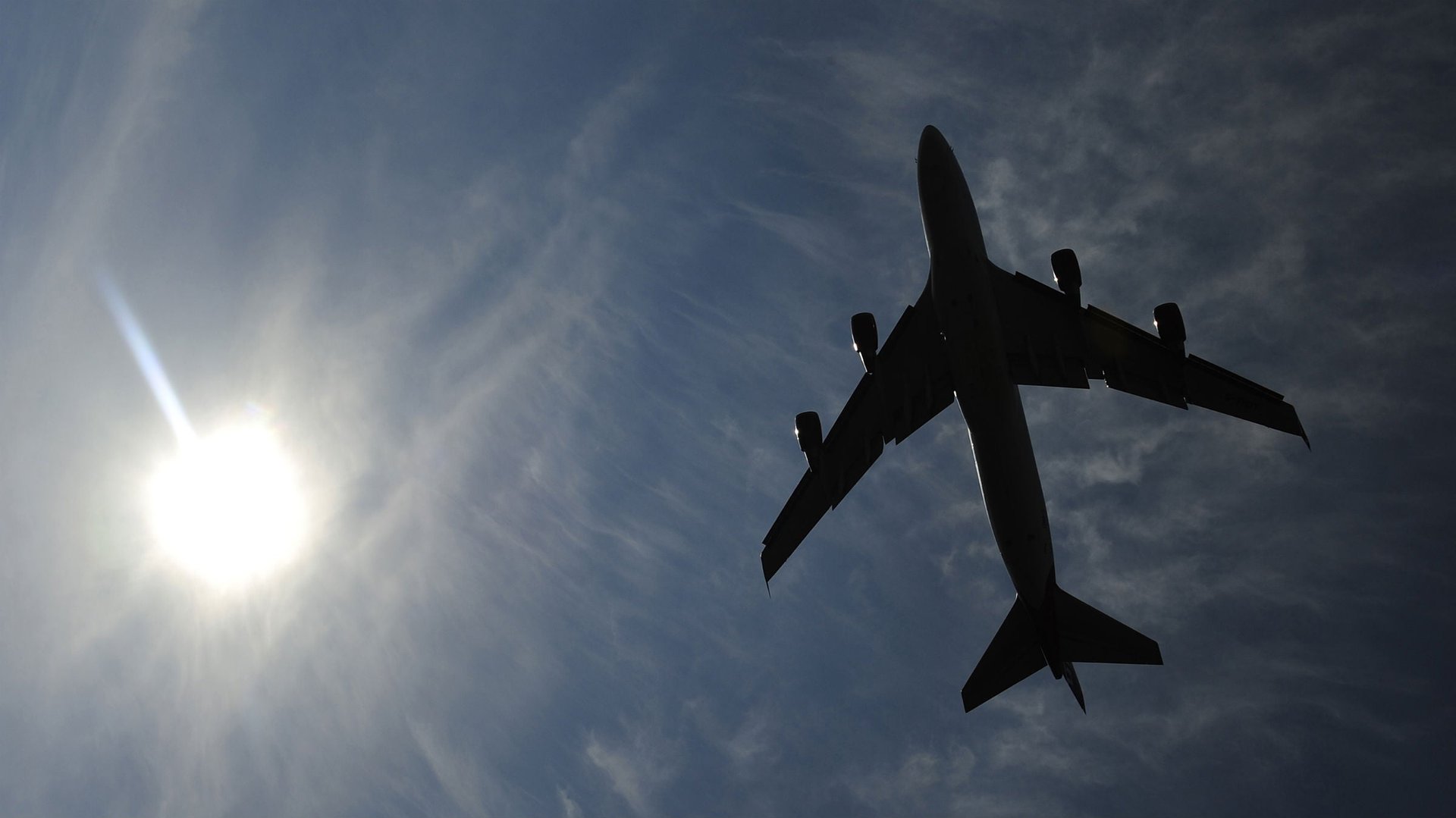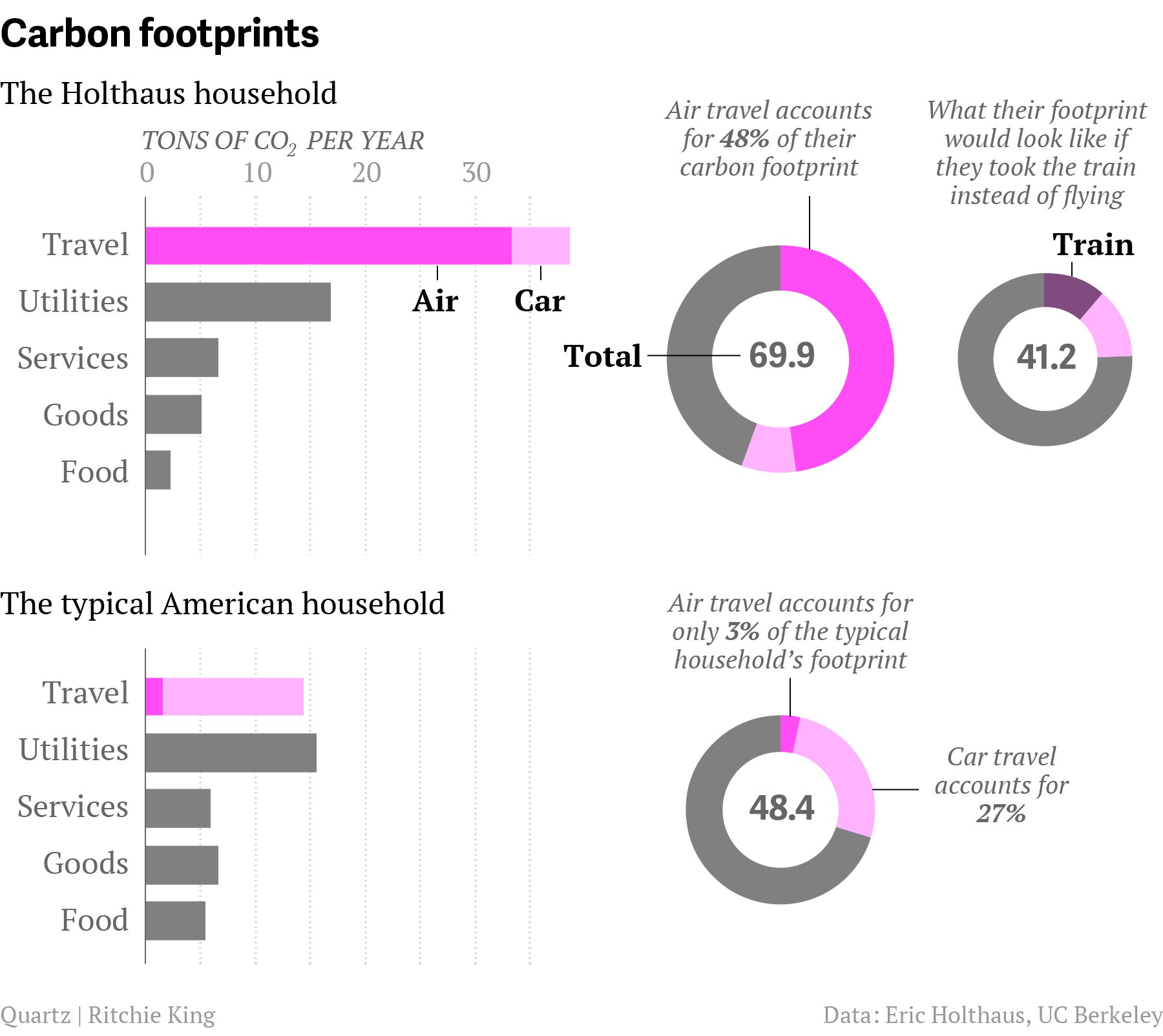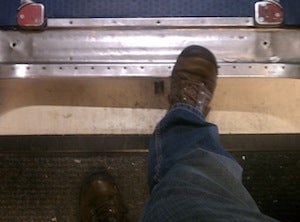Why I’m never flying again
When a panel of the world’s best scientists issued a new report on climate change (pdf), I did my best to read it like a meteorologist. The facts led to a simple conclusion: Humans cause global warming. And without an immediate and dramatic cut in carbon emissions, the problem could become irreversible.


When a panel of the world’s best scientists issued a new report on climate change (pdf), I did my best to read it like a meteorologist. The facts led to a simple conclusion: Humans cause global warming. And without an immediate and dramatic cut in carbon emissions, the problem could become irreversible.
That was easy enough to convey. But later that day, I was on the phone with my wife, getting ready to board a plane in San Francisco and thinking about the report more existentially. Any hope for a healthy planet seemed to be dwindling, a death warrant written in stark, black-and-white data. It came as a shock.
“This was our chance,” I told her, crying. “And it’s gone.”
My wife and I realized that the “substantial and sustained reductions” called for by the Intergovernmental Panel on Climate Change (IPCC) had to start with us. World governments will never agree in time to coordinate reductions in greenhouse gas emissions. If anything is to change, it will have to come from individuals taking ownership of the problem themselves.
And that’s why my wife and I suddenly knew we could never fly again.
Now, I’m just an average guy, trying to do my best. I already do a lot to reduce my impact on the environment: I recycle. My wife and I share a car. I’m a vegetarian. I turn out the lights when I leave the room. I take those fancy reusable bags with me when I go food shopping.
But I also fly a lot—about 75,000 miles last year. A lot of that is travel to Africa and the Caribbean, where I work on projects to reduce the impact of climate change. This year, I also started flying on behalf of the startup I work for, Weathermob. I have gold status on Delta, and my wife and I were planning trips to Hawaii and Europe, all for free with frequent flyer miles.
Still, I didn’t comprehend quite how big an impact all those flights were having on the climate until I crunched the numbers with UC Berkeley’s excellent carbon footprint calculator. I was shocked to discover that air travel comprised almost half of my household’s emissions last year, or 33.5 metric tons of CO2.

The average American household, as you can see in the chart above, flies much less than I do, and should probably focus more effort on reducing emissions from car travel (or other things) rather than planes. But for a lot of us frequent fliers, the environmental harm is dramatic and adds up fast. A one-way flight from New York to San Francisco (2.23 tons of CO2) has nearly the same impact as driving a Hummer the same distance (2.81 tons).
By vowing not to fly, I went from having more than double the carbon footprint as the average American to about 30% less than average.
I don’t take the decision lightly or imagine that it won’t have a big impact on my life. But my wife and I are lucky enough to live in a stunningly beautiful part of the country. Most of our immediate family lives within a day’s drive. I’m excited to spend future vacation days exploring the local area.

I’ll still have to travel a lot (by car and train), and I’ll use videoconferencing for meetings I can’t miss. But by removing my single biggest impact on the climate in one swoop, I can rest a bit easier knowing I’ve begun to heed the IPCC’s call to action. Individual gestures, repeated by millions of people, could make a huge difference.
That humans cause climate change was not a new finding last week, but scientists are now more confident about it (95%) than they are that smoking causes cancer or that vitamins are good for you. Also, for the first time, the IPCC report cast doubt on the efficacy of geoengineering, previously considered a possible last-ditch technical solution.
So I guess last week’s report hit me harder than I expected. My profession is meteorology, which is all about data, but my heart is drawn to people and how we interact with the planet. Together, we can reverse the damage that we have already caused. We can all do something.
My first big step is staying on the ground.